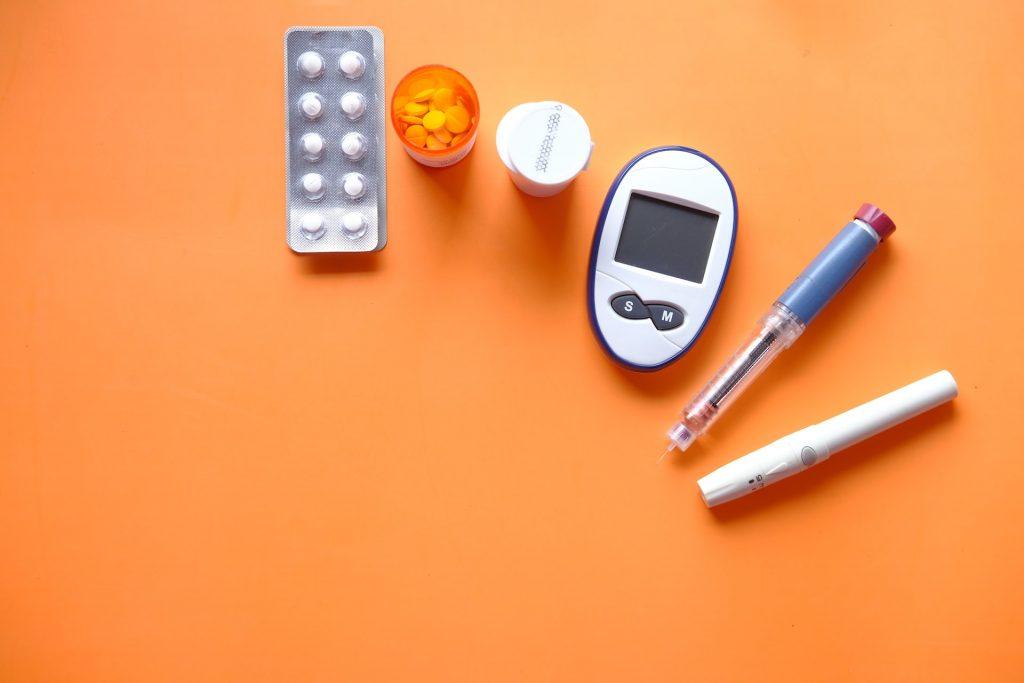Before the invention of anti-diabetic medications, diet and lifestyle modification played a pivotal role in reducing the risk of diabetes. Food was consumed as medication that helped maintain a healthy body and mind. With the availability of insulin and anti-diabetic medication, the core part of maintaining our health, that is food, has taken a back seat.

Let’s first understand what is diabetes and then the food which can help in reducing the risk of diabetes.
Diabetes and its types.
Diabetes is a chronic metabolic disease, which is characterized by elevated levels of blood glucose or blood sugar, which leads over time to serious damage to the heart, blood vessels, eyes, kidneys & nerves.
There are mainly three types of diabetes: Type 1, Type 2 & Gestational Diabetes (diabetes while pregnant).
- Type 1 diabetes known as insulin-dependent or juvenile diabetes, is a chronic condition in which the pancreas produces little or no insulin by itself.
- Type 2 diabetes is a common type of diabetes. This is usually reported in adults & it occurs when the body becomes resistant to insulin or doesn’t produce enough insulin.
- Gestational diabetes is observed in pregnant women who have never had diabetes.
Average 422 million people worldwide have diabetes, and 1.5 million deaths are directly attributed to diabetes every year.
WHO
Food plays a major role in the progression of diabetes as well as controlling sugar or sugar spikes in a person suffering from diabetes. Carbohydrates, Fibre, and Proteins are important content of all food.
Food for thought – all about carbohydrates.
Carbohydrate is also known as carbs. The body breaks down carbs into glucose (a sugar), which then increases the level of glucose in the blood. The body utilizes that glucose for fuel to keep you going throughout the day. Which is known as “blood sugar” or “blood glucose”.

There are three types of carbohydrates: –
- Sugars like natural sugar in fruit and milk, added sugar in soda, and many other packaged foods.
- Starches include oats, wheat & other grains; starchy vegetables like corn & potatoes; dried beans, lentils & peas.
- Fiber is the part of plant foods that are not digested but help to stay healthy.
Sugars and starches increase blood sugar, but fiber doesn’t.
The carbohydrate quantity and quality play a major function in the management and prevention of diabetes. In 2002, the Institute of Medicine (IOM) established an RDA for carbohydrates of 130 grams/day for adults and children aged ≥1 year. This value is dependent on the number of sugars and starches required to provide the brain with an adequate supply of glucose.
The IOM set an acceptable macronutrient distribution range (AMDR) for carbs of 45–65% of total calories.
Low carbohydrate diet – role in reducing the risk of diabetes.
Before any medications were available for the treatment of diabetes mellitus, experts recommended dietary carbohydrate restriction in the early 20th century. After the discovery of insulin and oral hypoglycemic medicines, experts gradually changed the dietary recommendations to include more carbohydrate intake as experts reasoned that the medications could be used to keep glucose in control.
People with type 2 diabetes ate a low carbohydrate diet for 6 months and their diabetes remained well managed more than 3 years later if they stick to the diet.
Nutrition & Metabolism
One study reported that people with type 1 diabetes followed a low carbohydrate diet, those who followed the diet saw a significant improvement in blood sugar levels over a 4-year period & achieves a long-term significant HbA1c reduction.
High-starch, high-carbohydrate diets excessively stimulate appetite and disturb energy balance in patients with the metabolic syndrome and type 2 diabetes.
Nutrition & Metabolism
Fiber – role in reducing the risk of diabetes.
Fiber also helps to control blood sugar levels in people with diabetes. Fiber, particularly soluble fiber can slow the absorption of sugar and help to improve blood sugar levels. A diet that includes insoluble fiber may also reduce the risk of developing type 2 diabetes.

Protein – role in reducing the risk of diabetes.
Diets high in protein have shown beneficial effects on glucose homeostasis in short-term trials and have thus been suggested as a potential strategy for type 2 diabetes (T2D) prevention. The Recommended Dietary Allowance of protein for a healthy adult with minimal physical activity is currently 0.8 g protein per kg body weight per day.
Higher protein intake may reduce risk of developing diabetes and also improves metabolic control when weight loss is achieved.
Current Atherosclerosis Reports
More intakes of total and animal protein were related to a higher risk of Type-2 Diabetes, while intake of vegetable protein had a modest inverse association. Vegetable protein and low-quality carbohydrates were associated with a reduced risk of Type 2 Diabetes. It is suggested that adopting a diet rich in plant-based proteins should be considered for Type 2 Diabetes prevention.
Changes that will help.
Making a few changes in your lifestyle may also help to avoid the serious health complications of diabetes in the future. Lose extra weight, Eat healthy plant foods, Eat healthy fats, Be more physically active, skip fad diets and make healthier choices.
Low carbohydrate intake, fiber intake, and vegetable protein intake may reduce the risk of diabetes.























